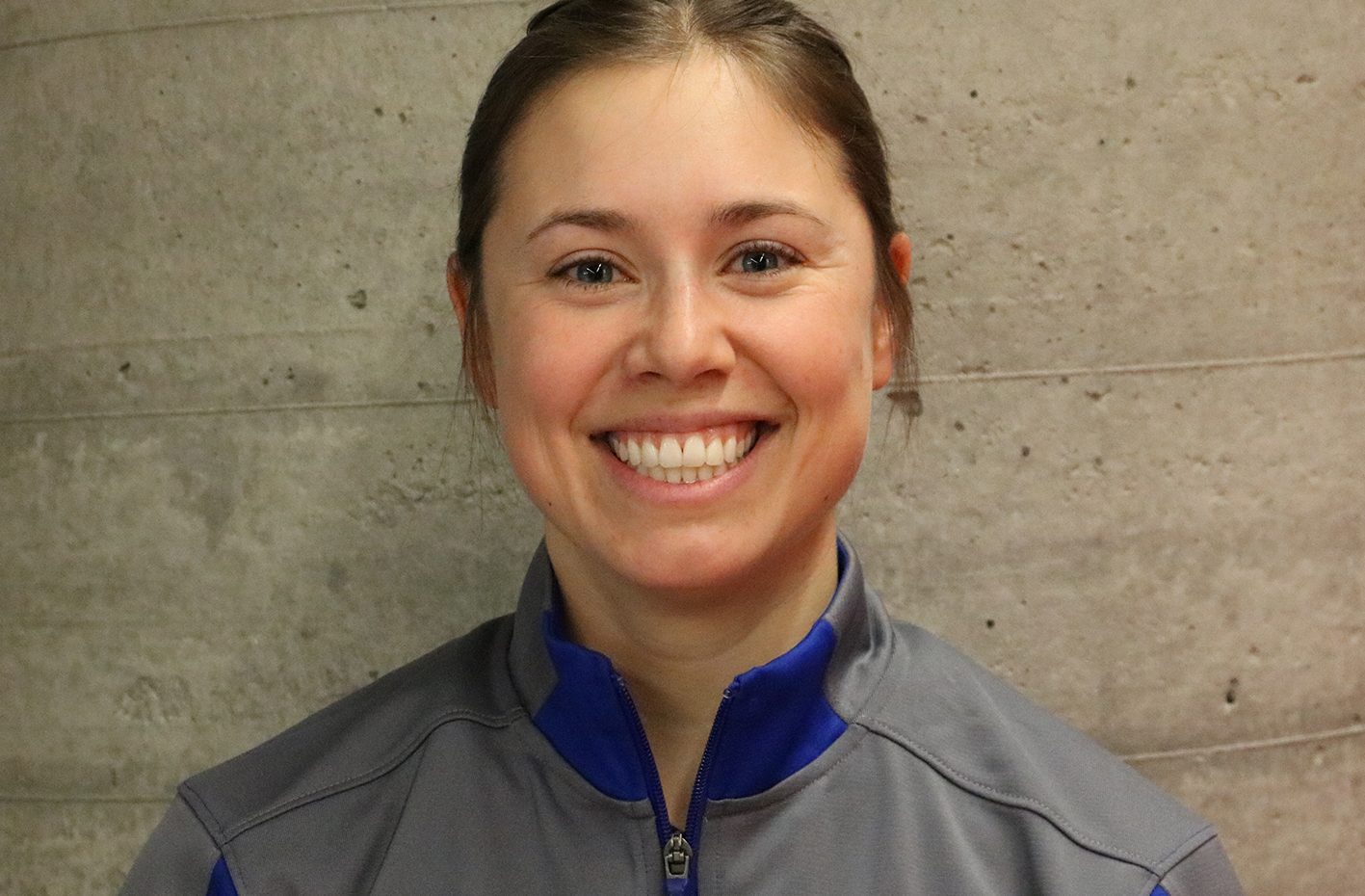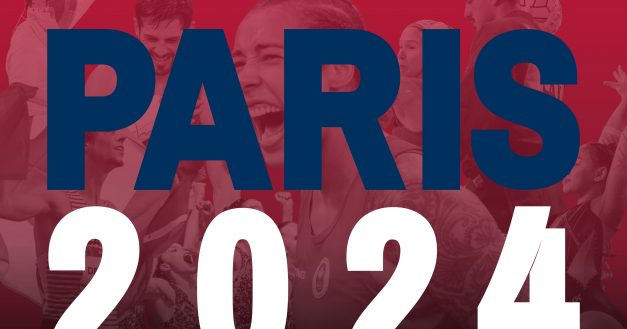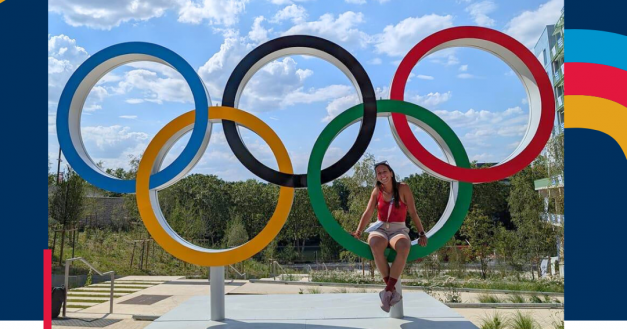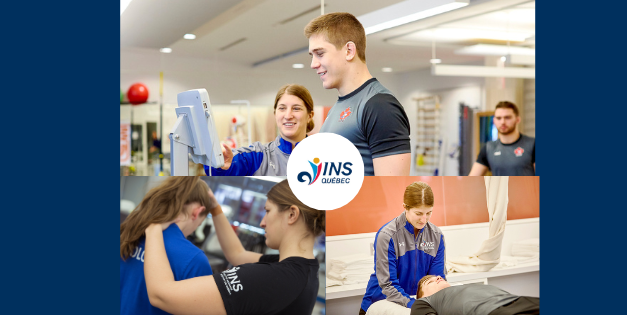Myriam Paquette receives the Young Researcher Award at the SPIN Summit
INS Québec Exercise Physiologist Myriam Paquette received the Young Researcher Award for her presentation “Performance and physiological changes following two types of interval training in trained kayakers”. The award was presented at the SPort INnovation (SPIN) Summit organized by Own The Podium, which was held virtually from October 21 to 23. This annual conference—now in its 15th year—is Canada’s leading-edge symposium for professional development and networking in the areas of applied sports science, sports medicine and innovation.
Initially selected from among the finalists by a jury, the PhD student was invited to present a summary of her research project to SPIN participants. “As the presentations were given online, I couldn’t see people’s reactions and so it was difficult to judge the interest sparked by my research summary.” Then, Paquette’s presentation was given the award as a result of the participants’ vote. “I have received a number of very positive comments and congratulatory messages. It really made me happy!” »
Guy Thibault, Director, Sport Sciences at INS Québec, is impressed by Paquette’s work: “So much innovation to advance training methods — we never see this so early in a career. Myriam is breaking the mould by putting forward concepts that raise standards. I hope seasoned scientists will draw on her inspiring work. Myriam is a source of pride for the entire INS Québec team!” »
To be eligible for the Young Researcher Award, scientists submitting a research project summary must be a student or have recently graduated. In the coming months, Paquette will complete her PhD at Université Laval. The research project summary presented at SPIN is directly linked to her doctoral thesis, with François Billaut and François Bieuzen as her PhD supervisors.
Formerly an athlete on the university and national cross-country ski circuits, Paquette first enrolled in a bachelor’s degree in kinesiology with the aim of promoting the benefits of physical activity. “I remember, in Secondary 5 (11th grade), I did a project about the effect of sport on concentration and academic results. I understood that sport helped me a lot and I wanted to become a kinesiologist. Then, during my time at university, I did internships and classes in sports performance. What interested me then was understanding the effects of different types of training.” »
After her master’s degree, she applied for a physiologist position at INS Québec. “Before I heard about the position, I didn’t even know that there was such a job as a physiologist, but I immediately realized that it was exactly what I wanted to do in life.” Several scientists holding a doctorate submitted their applications for the position and hers was not chosen. “However, the scientific director contacted me and he offered me an internship contract if I wanted to start a PhD.” She accepted the challenge and joined the team at INS Québec.
Upon arriving in Montréal, she worked with the kayaking team and saw the opportunity to conduct a research project that would answer certain questions about the training of these athletes and help with preparation that was more specific to the sport. “Kayakers trained like any other endurance athlete. By talking to the coach and my thesis supervisor, we identified questions that would be useful to answer: What were the key factors of kayaking performance? Does the increase in maximum oxygen capacity make a difference? Since this sport mainly uses the upper body, and central cardiac output demand is lower, should kayakers train differently from other endurance athletes?” These are just some of the issues that she is working on as part of her research project.
Today, as part of her work at INS Québec, she works mainly with the para-cycling and para-swimming teams. “My role requires me to monitor athletes, conduct physiological tests and advise coaches on training planning. I am directly on the ground providing scientific support. The most important thing is to develop a relationship of trust with the sports team. We have to listen to the concerns of the coaches and athletes who we work with and offer solutions. The priority must always be the athlete or the sports team in front of us.”
Paquette intends to pursue her career with top athletes. “My goal is to continue to support sports teams while doing applied research. I want to help advance knowledge, especially about Paralympic sports, because very little research has been carried out in this area to date.” »
Paquette will undoubtedly be an asset for all the training groups that she works with during her career.



